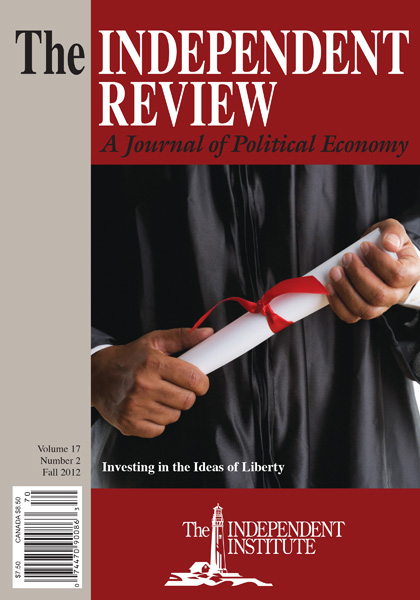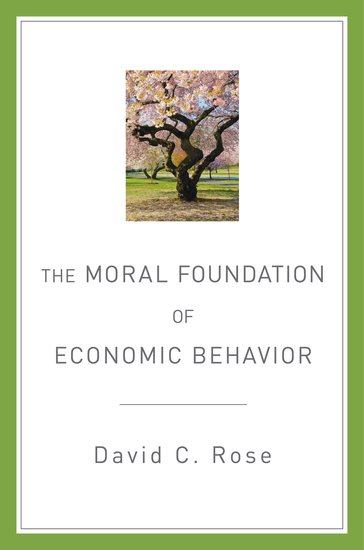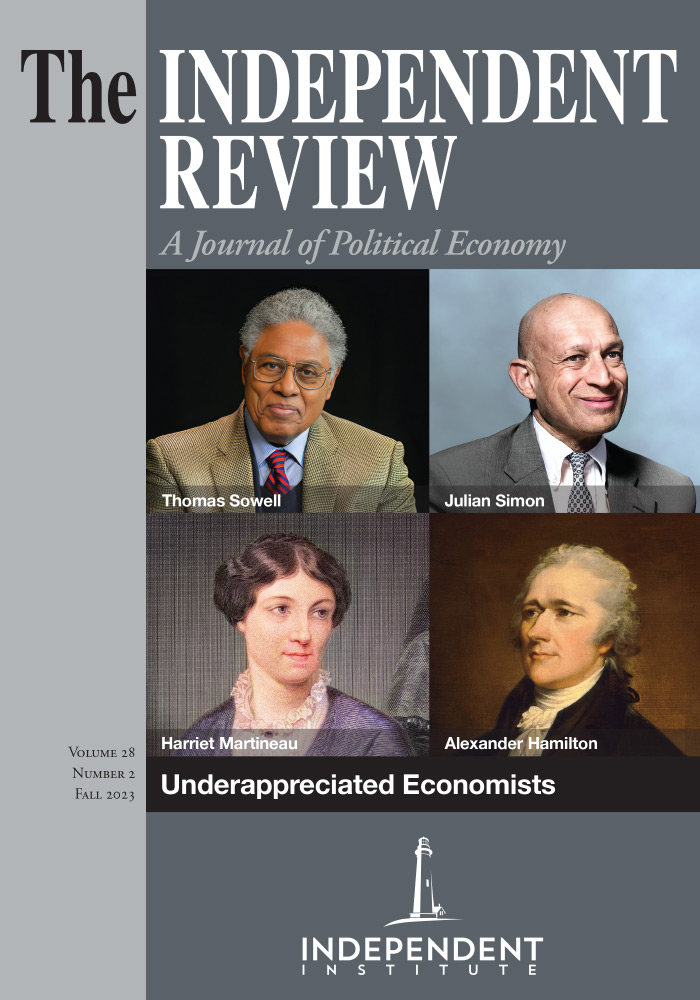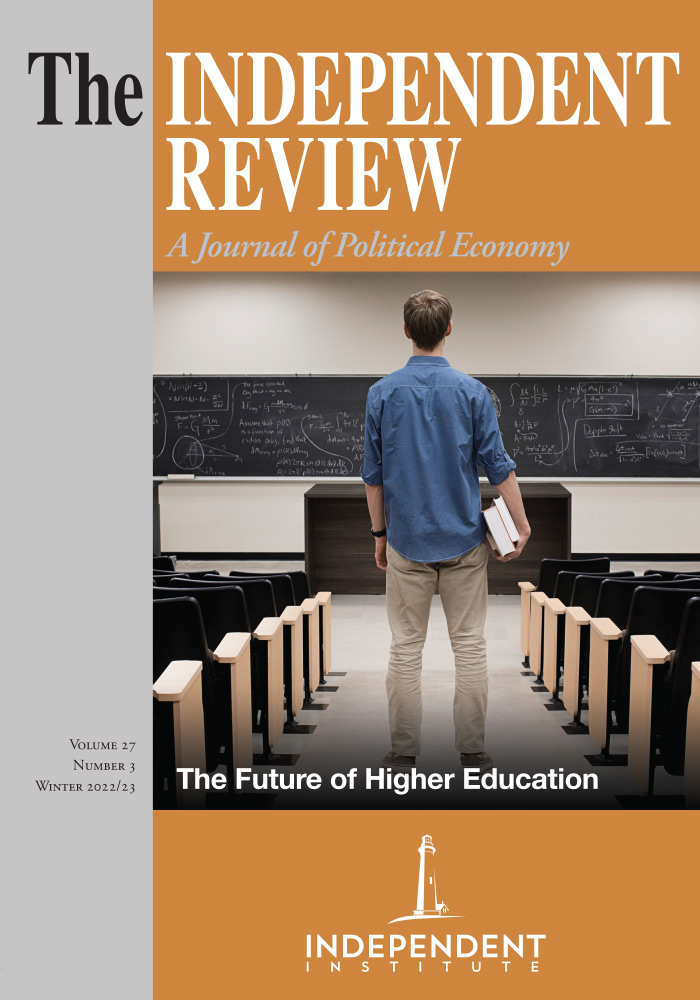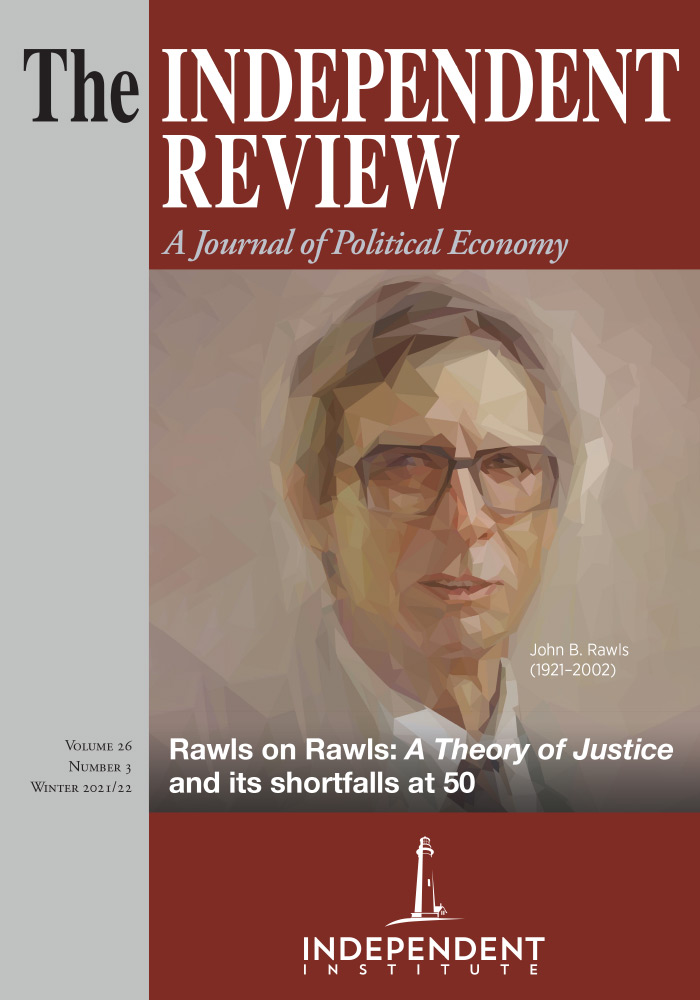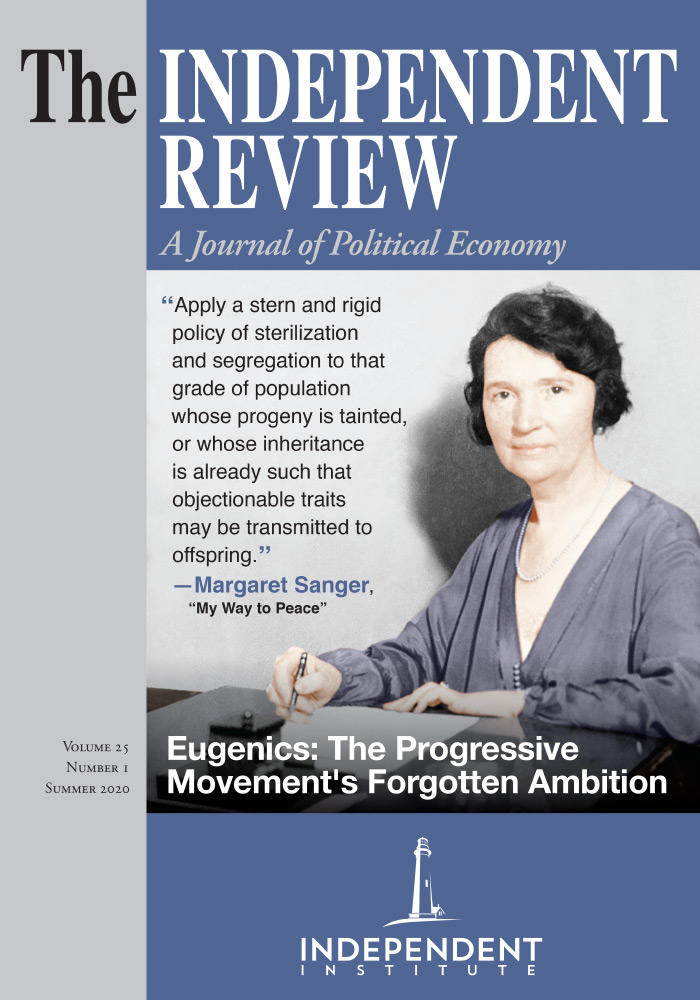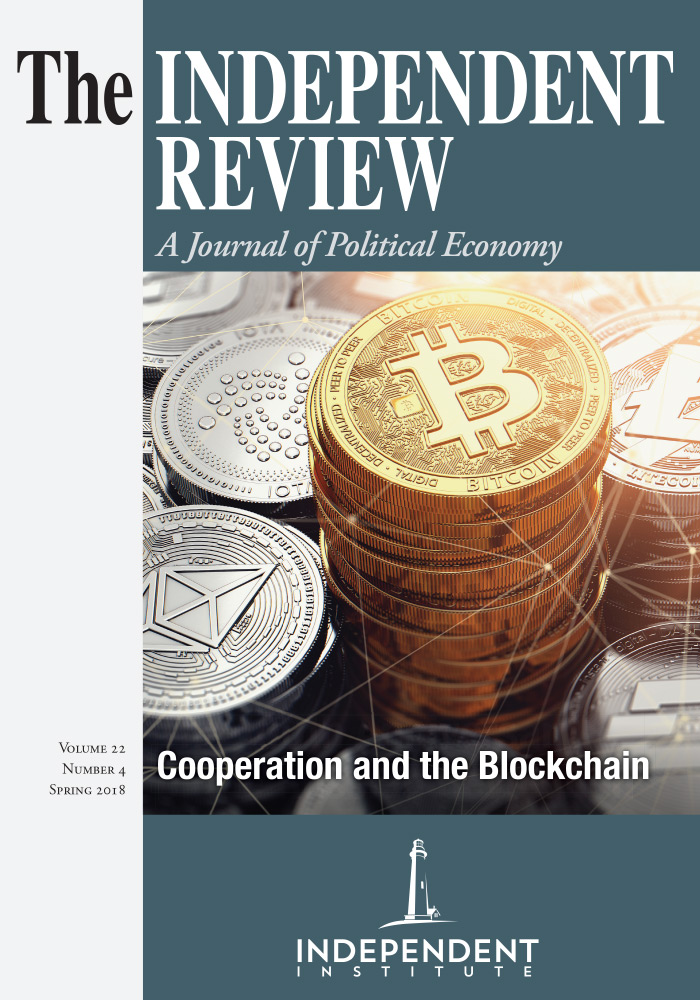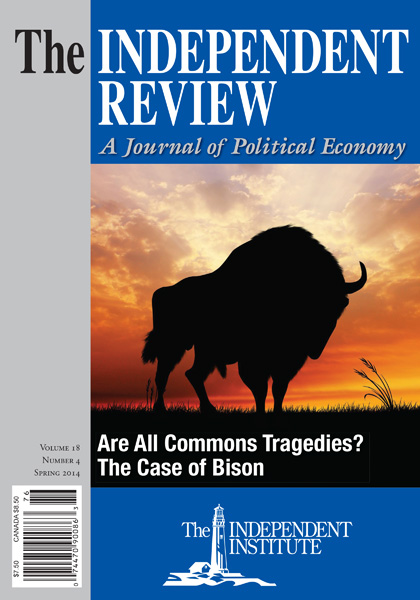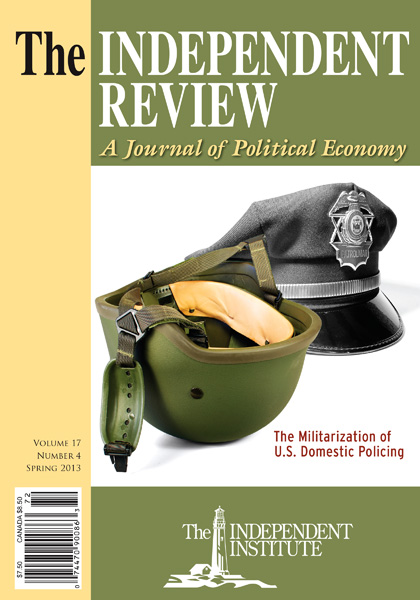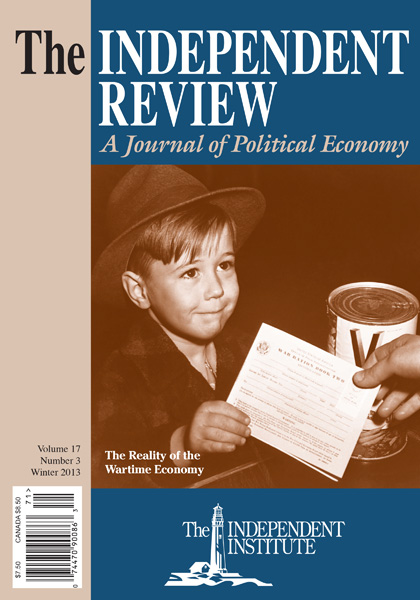Who is this David Rose, and where has he been? Such was my initial reaction after reading Rose’s book The Moral Foundation of Economic Behavior. It is so provocative, so carefully constructed, and so potentially pathbreaking, especially for a first book, that it seems to have sprung fully formed like Athena from Zeus’s head.
The book is an extended thought experiment launched by this question: “If a society’s sole objective is to maximize general prosperity and it can choose its own moral beliefs, what kinds of moral beliefs would it choose?” (p. 4, emphasis in original). The author proposes a sophisticated, novel, and compelling answer to this question. It therefore deserves to be read by anyone with an interest in how to promote human prosperity.
It is not possible to sketch all of Rose’s argument in this brief review, so let me instead focus on one central part of it, which is connected to an unappreciated but deep problem with respect to harm-based moral prohibitions. The problem is that in many cases an action that might cause obvious harm in one-on-one interactions and thus would be prohibited by an injunction to “do no harm” either does not cause harm or causes no perceptible harm in larger communities. Thus, if I defraud you when you and I have made an agreement, the harm I cause you is likely to be both real and apparent. When I defraud an insurance company, however—say, I have the body shop repair a ding on the passenger door even though the accident for which I am filing a report did not affect that part of the car’s body—not only is there no perceptible harm to anyone, but there is a real sense in which there is no harm to anyone. The extra $500 charged to my insurance company is distributed across so many people (hundreds of thousands, perhaps even millions) or is part of such a large budget (perhaps billions or tens of billions of dollars), that it may as well have been zero. No one will notice because no one can notice. Thus, although a system of moral prohibitions based on avoidance of harm will restrain people in many, mostly small-scale cases, in many other instances it will be simply inapplicable—and these latter instances only increase as globalization increases. If, therefore, we wish to advocate a set of moral beliefs that will maximize general prosperity, it will have to be based on something other than injunctions to refrain from harming others. So although Mill’s so-called harm principle is a good first approximation, it turns out not to be sufficient.
The first step in Rose’s solution to this problem is to divide moral behavior into two groups: positive moral actions and negative moral actions. The former is doing something good for others; the latter is doing something bad to others. Rose demonstrates that contrary to what one might have expected, exhortations to take positive moral actions are far less important for maximizing general prosperity than are prohibitions against negative moral actions, which therefore gives the latter a moral “lexical primacy” over the former. He then demonstrates that the way to overcome the kinds of problems articulated earlier is by making the reason for refraining from committing negative moral actions principled rather than calculated: “[O]nly when moral restraint is regarded as a matter of duty will it produce unconditional trustworthiness where doing so matters most.” He continues: “This means that it is not enough to strongly value refraining from taking negative moral actions; we must possess a nonconsequentialist theory of moral propriety with respect to negative moral actions” (p. 141).
The maximization of prosperity that is the ultimate goal of this thought experiment is achieved by realizing gains from exchange—by exploiting the mechanisms of a free and decentralized market. Rose’s argument, however, is that the political and economic institutions we typically associate with a free market—rule of law, protection of private-property rights, enforcement of voluntary contracts, limited third-party interference in others’ exchanges—are necessary but not sufficient to permit realization of the full benefits of markets. What is also needed is trust. We need to trust that others will abide by agreements, respect others’ property rights, and so on even in those cases when if they did not abide by agreements or respect property rights, they could not be caught, or there would be no identifiable harm or victim. Rose argues, moreover, that trust unfortunately will not arise only as a prudential response to incentives because in these cases—which Rose, following Robert Frank, calls “golden opportunities,” when one knows one will not get caught or when one knows there is no identifiable harm or victim—the incentive is to commit the negative moral action rather than to refrain from it. If the benefit to me from reneging on an agreement or from stealing from my company is tangible, but the cost is negligible or nonexistent, and if I am responding only to incentives, then I will and should renege or steal. But trust properly understood obtains precisely when I know you will not engage in negative moral actions even when you are confronted with a such a “golden opportunity.”
So we face a dilemma. We need pervasive, reflexive trust for a market-based economy to work properly, yet that trust itself is not properly brought forth by individual incentives. So how do we get the trust? The answer, Rose argues, is to understand refraining from negative moral prohibitions not as a result of an on-thespot (or even an all-things-considered) calculation, but rather as a matter of moral principle: I will not renege (or steal), period; I don’t care what the consequences are. Only when I believe that you are the sort of person whose actions are guided by such a commitment will I trust you sufficiently to enter into agreements with you. And only when a company trusts its employees sufficiently will it allow them the wide latitude and discretion necessary for them to be entrepreneurial, thereby exploiting their local knowledge and individual, creative initiative, which will generate all the increasing prosperity that markets are capable of generating.
Rose’s book is full of intriguing insights and provocative discussions. In one important section, he distinguishes three “degrees” of “opportunism” (pp. 30–36). The first occurs when I renege on an agreement with you. That default is relatively easy to detect and thus easy to prevent via punishments such as effects on reputation. The second degree is when you and I enter into an agreement in good faith, but I discover afterward a way in which I can benefit by abiding by the letter of the agreement while violating its spirit. This second degree of opportunism is somewhat more difficult to detect and prevent, requiring lawyers, enforcement and monitoring mechanisms, and so forth. These preventive measures are costly and therefore diminish the potential gains from our exchange. In a third degree of opportunism, however, I abide by both the letter and the spirit of our agreement, but I do not put forth as much effort as I might, so although the gains are positive, they are not as large as they might have been. Perhaps I am your employee, and my ultimate job is to help maximize our profit; because we are a large firm, and you wish to exploit my entrepreneurial creativity, you give me substantial discretion. I discover ways to allocate resources that will lead to increasing positive returns: you are happy, and so am I. But perhaps I discover ways that would lead to even greater returns but would require me to work harder, and I decline to pursue them because I do not want to work that hard. This opportunism exists even though you and I are still benefiting. Such opportunism is almost impossible to detect or punish—and yet it will have real consequences in large, entrepreneurial firms because it involves a failure to attain indefinitely large gains.
How can we combat these three kinds of opportunism, especially the third? Rose’s answer: by instilling a principled adherence to prohibitions on negative moral actions: “The moral foundation of economic behavior can now be stated thusly: the moral foundation of economic behavior is a norm [of] unconditional trustworthiness made possible by a preponderance of people possessing an ethic of duty-based moral restraint while not regarding moral advocacy as a moral duty” (p. 140, emphasis in original). Thus, people must refrain from all three degrees of corruption not because of a cost-benefit analysis, but rather as a matter of principle. How do we do so? Here the argument gets tricky and complicated; the answer has to do with figuring out how we can increase individual feelings of guilt for having compromised these rules. Can an economist really rely on guilt and even work out formulas involving a guilt function? Believe it or not, Rose makes exactly such an attempt. He even develops a theory of culture that can incorporate guilt, trust, and recommended duty-based moral restraint in the service of maximizing general prosperity. Even more surprising, I think his plan might work.
Many questions arise at this point, but in this dense book Rose seems to have anticipated many of them. Indeed, if I have a general criticism of the book, it is that it is too dense and attempts to accomplish too much within the covers of one short book. In this book, every sentence counts; if you miss one, you miss a crucial part of the argument. Such compactness can make for tough slogging. Consider this one brief but important paragraph: “The weak or nonexistent empathy response to counterfactual harm is of particular relevance to the use of relational contracts for which third-degree opportunism is a problem. Recall that the larger is the firm, the more localized is knowledge and therefore the more important are relational contracts. But relational contracts create innumerable opportunities for third-degree opportunism that produce harm that is often only counterfactual in nature, because the selfserving action still increases profit at the margin” (p. 105). A great deal is packed into these three sentences. All of the important terms involved were defined and discussed earlier in the book, but if you were not paying attention, you might easily have missed them. And that possibility teaches a lesson applicable to the entire book: you have to pay attention.
Doing so, however, is worth the effort. Indeed, I think this book is one of the most unusual, intriguing, and potentially pathbreaking books I have read in a long time. I have reservations about various parts of the argument, but Rose manages to exploit contemporary results in fields such as game theory, evolutionary psychology, and even moral philosophy to construct a unified and coherent moral and economic theory more plausible than perhaps any other attempt I have seen—and I have seen a great many of them. I understand that Rose is now working on a series of books that will draw out various aspects of the argument contained in this book and that many publishers are vying for the publication rights. I can understand why they are doing so. The Moral Foundation of Economic Behavior is an impressive achievement. It deserves a wide audience. If it gets one, it will inaugurate new and better investigation into the deep connections between morality and prosperity.
| Other Independent Review articles by James R. Otteson | ||
| Summer 2019 | Opting Out: A Defense of Social Justice | |
| Summer 2017 | The Misuse of Egalitarianism in Society | |
| Winter 2010/11 | Why Not Socialism? | |
| [View All (8)] | ||

